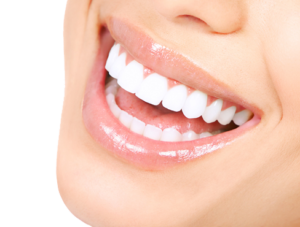Oral health means the state of your mouth, teeth, and related parts, which help you, eat, breathe, and talk easily and without any problems.

 Flavored carbonated water with added sugar can harm teeth and should be consumed in moderation.
How can I improve my oral health?
Flavored carbonated water with added sugar can harm teeth and should be consumed in moderation.
How can I improve my oral health?
 Dentists suggest brushing teeth twice daily with fluoride toothpaste and flossing once daily. Flossing helps remove plaque between teeth, which brushing alone can’t reach.
How are oral health problems related to other health problems?
Issues with oral health may indicate other health conditions, like diabetes. If you have specific health problems, your chances of experiencing oral health issues are greater.
How can I prevent oral health problem?
To prevent oral health problems:
Visit your dentist once or twice a year for checkups.
Eat healthy foods and limit sugary snacks and drinks to lower your risk of tooth decay.
Remember to brush after meals and floss daily.
Dentists suggest brushing teeth twice daily with fluoride toothpaste and flossing once daily. Flossing helps remove plaque between teeth, which brushing alone can’t reach.
How are oral health problems related to other health problems?
Issues with oral health may indicate other health conditions, like diabetes. If you have specific health problems, your chances of experiencing oral health issues are greater.
How can I prevent oral health problem?
To prevent oral health problems:
Visit your dentist once or twice a year for checkups.
Eat healthy foods and limit sugary snacks and drinks to lower your risk of tooth decay.
Remember to brush after meals and floss daily.
 Avoid smoking, as it increases the risk of gum disease and mouth cancers.
Drink less soda and opt for water instead, as even diet soda can harm tooth enamel due to its acidic content.
Avoid smoking, as it increases the risk of gum disease and mouth cancers.
Drink less soda and opt for water instead, as even diet soda can harm tooth enamel due to its acidic content.

- Oral health is crucial for overall well-being.
- A healthy mouth includes strong teeth, moist tissues, and pain-free gums.
- Signs of a healthy mouth include firm, non-bleeding gums and securely attached teeth.
- Preventing common oral diseases like tooth decay and gum disease is essential.
- Untreated tooth decay (or cavities) is one of the most prevalent health issues globally.
- Good oral hygiene, regular dental check-ups, and a healthy lifestyle help maintain oral health.
- Nutrition plays a key role in oral health.
- Foods rich in calcium and phosphorus, like dairy products and leafy greens, protect tooth enamel.
- Fruits and vegetables high in water and fiber, such as apples and carrots, clean teeth and
- stimulate saliva production.
- Drinking water, especially fluoridated water, is the best choice for oral health.
 Flavored carbonated water with added sugar can harm teeth and should be consumed in moderation.
How can I improve my oral health?
Flavored carbonated water with added sugar can harm teeth and should be consumed in moderation.
How can I improve my oral health?
 Dentists suggest brushing teeth twice daily with fluoride toothpaste and flossing once daily. Flossing helps remove plaque between teeth, which brushing alone can’t reach.
How are oral health problems related to other health problems?
Issues with oral health may indicate other health conditions, like diabetes. If you have specific health problems, your chances of experiencing oral health issues are greater.
How can I prevent oral health problem?
To prevent oral health problems:
Visit your dentist once or twice a year for checkups.
Eat healthy foods and limit sugary snacks and drinks to lower your risk of tooth decay.
Remember to brush after meals and floss daily.
Dentists suggest brushing teeth twice daily with fluoride toothpaste and flossing once daily. Flossing helps remove plaque between teeth, which brushing alone can’t reach.
How are oral health problems related to other health problems?
Issues with oral health may indicate other health conditions, like diabetes. If you have specific health problems, your chances of experiencing oral health issues are greater.
How can I prevent oral health problem?
To prevent oral health problems:
Visit your dentist once or twice a year for checkups.
Eat healthy foods and limit sugary snacks and drinks to lower your risk of tooth decay.
Remember to brush after meals and floss daily.
 Avoid smoking, as it increases the risk of gum disease and mouth cancers.
Drink less soda and opt for water instead, as even diet soda can harm tooth enamel due to its acidic content.
Avoid smoking, as it increases the risk of gum disease and mouth cancers.
Drink less soda and opt for water instead, as even diet soda can harm tooth enamel due to its acidic content.
